What are the best Canada forex brokers?
We’ve tested over 60 international forex brokers and created unbiased, data-driven broker ratings to show you the best forex brokers in the industry. To help you navigate the world of forex regulations and choose a broker that you can trust, our expert research team has built a proprietary database containing over 100 global regulatory licenses and jurisdictions; that research determines each broker's individual Trust Score. Check out our top picks for the best Canada forex brokers:
Winner: FOREX.com

FOREX.com, part of the StoneX Group, is a highly trusted brand with a long history of offering forex in the U.S. and across the globe. We love FOREX.com's flagship trading platforms for web and desktop (TradingView's powerful charting is fully integrated within the broker's web platform), and MetaTrader loyalists will appreciate that FOREX.com offers both MetaTrader 4 and MetaTrader 5. An impressive number of CFDs are available within the broker's proprietary platform (though fewer are available on MetaTrader). FOREX.com's pricing is great for active traders, but our research found that FOREX.com is slightly expensive compared to the industry average. Overall, FOREX.com is a well-balanced choice for traders of all experience levels.
FOREX.com Trading Platform Screenshots
FOREX.com Features
- Overall rating - 9.4/10
- Trust Score - 99
- Tradeable symbols - 5500
- Minimum deposit - $100
Runner Up: AvaTrade

AvaTrade is a well-rounded, highly trusted broker that offers excellent educational resources for beginner forex traders and great tools for social copy trading. AvaTrade's commissions and market research are close to the industry average, and traders gain access to AvaTrade's proprietary platforms as well as third-party favorites like MetaTrader 4 and MetaTrader 5.
AvaTrade Trading Platform Screenshots
AvaTrade Features
- Overall rating - 8.7/10
- Trust Score - 94
- Tradeable symbols - 1260
- Minimum deposit - $100
Podium Finisher:
Trading Platform Screenshots
Features
- Overall rating - /10
- Trust Score -
- Tradeable symbols -
- Minimum deposit -
Compare trading costs for the best Canada forex brokers
Based on our own data (our independent database contains over 4,000 data points), this table compares trading costs for the top Canada forex brokers.
| Company |
Accepts CA Residents |
Minimum Deposit |
Average Spread EUR/USD - Standard |
Average Spread EUR/USD - Mini |
All-in Cost EUR/USD - Active |
Active Trader or VIP Discounts |
 FOREX.com FOREX.com
|
check |
$100 |
1.4 info |
1.4 info |
0.83 info |
Yes |
 AvaTrade AvaTrade
|
check |
$100 |
0.92 info |
0.92 info |
0.61 info |
Yes |
 FP Markets FP Markets
|
check |
$100 AUD |
1.1 info |
1.1 info |
0.8 info |
Yes |
 HFM HFM
|
check |
$0 |
1.2 info |
1.2 info |
0.7 info |
No |
 Eightcap Eightcap
|
check |
$100 |
1.0 info |
1.0 info |
0.76 |
No |
Comparing trading platforms between Canada forex brokers
Trading platforms grant access to the foreign exchange market and allow you to analyze market conditions, manage positions, and execute trades. Check out a side-by-side comparison of the trading platforms available at the best Canada forex brokers, based on our independent product testing.
Comparing investment options between Canada forex brokers
We closely monitor the availability of investment products such as forex trading (CFD and spot), stocks (CFD and non-CFD), spread betting, ETFs, and social copy trading – among many others. These investment types are tracked as variables within our extensive independent database. Check out the offering of investments at the top Canada forex brokers.
| Company |
Accepts CA Residents |
Forex Trading (Spot or CFDs) |
Spread Betting |
Social Trading / Copy Trading |
U.S. Stocks (CFD) |
 FOREX.com FOREX.com
|
check |
Yes |
No |
No |
Yes |
 AvaTrade AvaTrade
|
check |
Yes |
Yes |
Yes |
Yes |
 FP Markets FP Markets
|
check |
Yes |
No |
Yes |
Yes |
 HFM HFM
|
check |
Yes |
No |
Yes |
Yes |
 Eightcap Eightcap
|
check |
Yes |
No |
Yes |
Yes |
What is the best forex broker in Canada?
FOREX.com is our pick for the best forex broker in Canada. Founded in 1999, FOREX.com holds licenses across a number of notable global regulatory jurisdictions, and has earned an overall Trust Score rating of 99. FOREX.com's impressive offering of 5500 tradeable symbols opens up a wide variety of trading opportunities for its clients. If you are interested in opening an account, the minimum deposit to get started as a trader at FOREX.com is $100. We've tested and reviewed dozens of forex brokers and created unbiased, data-driven broker ratings to highlight the best forex brokers in the industry. Our overall rating for FOREX.com is 9.4/10. Read our data-driven broker reviews to learn more.
Check out a gallery of screenshots from FOREX.com's trading platforms, taken by our research team during our product testing.
Best Canada Forex Brokers
Here are our picks for the best forex brokers that accept Canada-based clients in 2024. The below table is sorted by the brokers' Overall Ratings.
Popular Forex Guides
More Forex Guides
Popular Forex Reviews
Methodology
At BrokerNotes.co, our data-driven online broker reviews are based on our extensive testing of brokers, platforms, products, technologies, and third-party trading tools. Our product testing extends to the quality and availability of educational content, market research resources, and the accessibility and capabilities of mobile platforms and trading apps. We also dive into each broker’s trading costs, such as VIP rebates, inactivity fees, custody fees, bid/ask spreads, and other fee-based data points.
Steven Hatzakis, an industry veteran with decades of experience in the forex market, leads the BrokerNotes research team. All BrokerNotes content is researched, fact-checked, and edited by the research team.
All websites and web-based platforms are tested using the latest version of the Google Chrome browser. Our Desktop PCs run Windows 11, and we use MacBook Pro laptops running the latest version of macOS to test trading on the go. We test mobile apps and products using iPhones running iOS 17 and Samsung devices running Android OS 14.
Note: The online brokers on our site provide the ability to trade forex in one or more ways, such as non-deliverable spot forex (i.e., rolling spot contracts), contracts for difference (CFD), or other derivatives such as futures. The availability of specific markets or features will depend on your country of residence and the broker's applicable brand or entity that services your account(s).
AI disclaimer
We use proprietary AI technology to assist in some aspects of our content production. However, our scores, ratings, and rankings of online brokers are based on our in-depth product testing and thousands of hand-collected data points. Learn more about our AI Policy and How We Test.
Forex Risk Disclaimer
There is a very high degree of risk involved in trading securities. With respect to margin-based foreign exchange trading, off-exchange derivatives, and cryptocurrencies, there is considerable exposure to risk, including but not limited to, leverage, creditworthiness, limited regulatory protection and market volatility that may substantially affect the price, or liquidity of a currency or related instrument. It should not be assumed that the methods, techniques, or indicators presented in these products will be profitable, or that they will not result in losses. Learn more about foreign exchange risk.




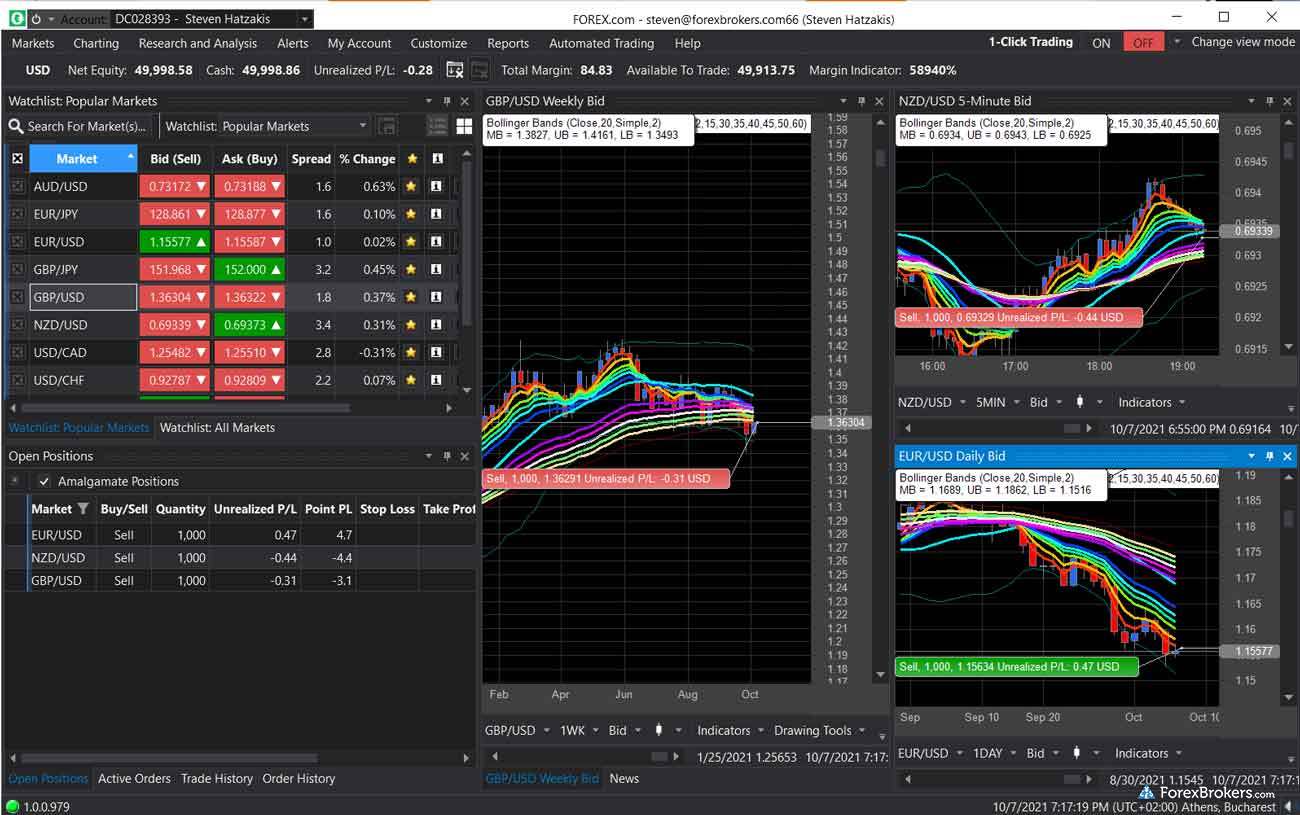



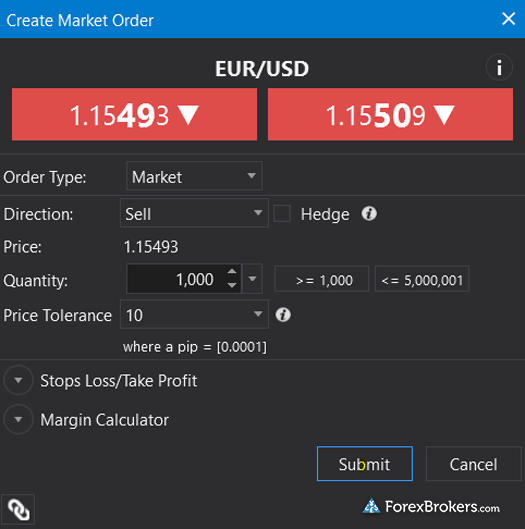




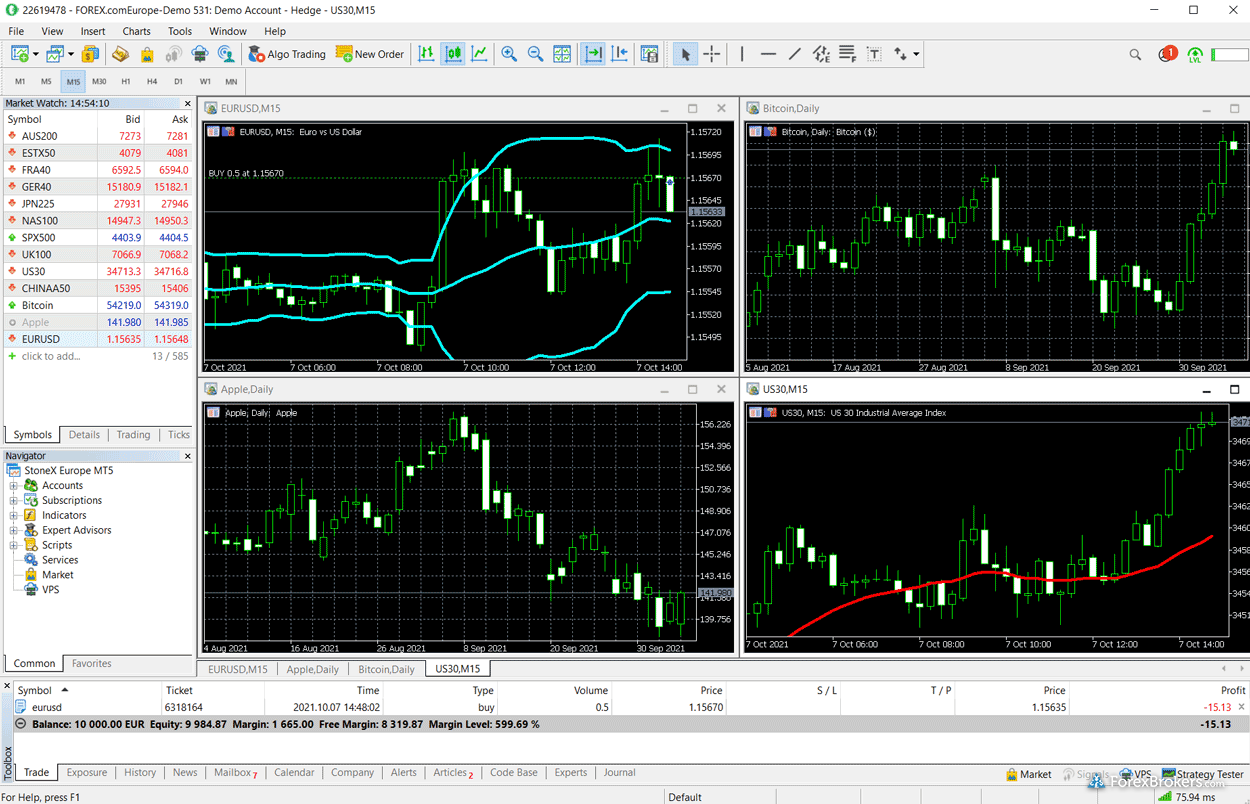


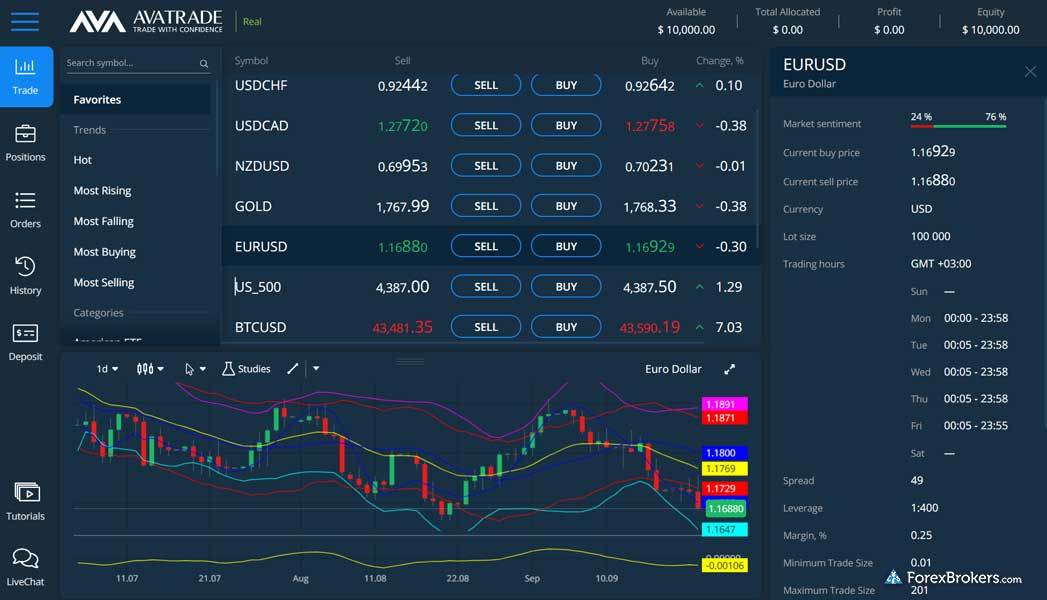


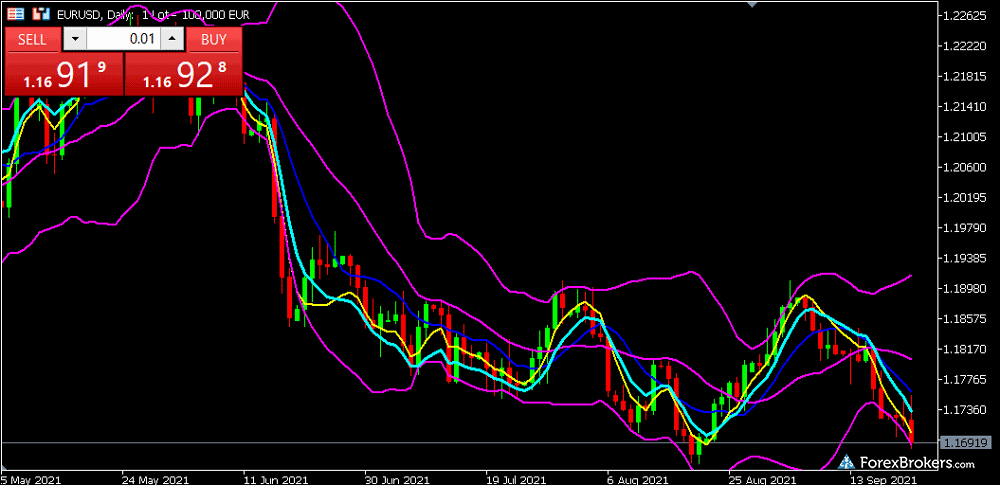



 FP Markets
FP Markets
 HFM
HFM
 Eightcap
Eightcap
 Spreadex
Spreadex
 FXPrimus
FXPrimus